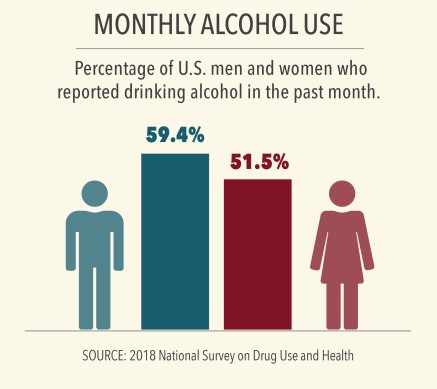Alcohol consumption among women has emerged as a multifaceted issue, weaving together threads of social norms, health implications, and gender dynamics. As the landscape of drinking habits evolves, it is essential to examine how these changes affect women’s health and societal roles. This article delves into various dimensions of alcohol usage among women, from historical contexts to contemporary trends, as well as the implications of these trends on women’s health and societal expectations.
Historically, alcohol has been intertwined with social rituals and cultural practices. In many societies, the act of drinking has often been dominated by male participants, leading to a long-standing narrative that associates alcohol consumption with masculinity. Women were typically seen as moderate drinkers or abstainers, largely due to social stigmas that branded them as immoral should they choose to indulge. This paradigm began shifting in the late 20th century, with increased societal acceptance of women consuming alcohol. The modern era has witnessed a rising trend of women not only drinking but also engaging in heavy drinking, a phenomenon that raises important questions about health, safety, and societal expectations.
As women increasingly partake in alcohol consumption, it is crucial to comprehend the psychological and societal factors that influence their drinking behaviors. The concept of “drinking like a man” has emerged, where women feel pressured to exhibit similar drinking patterns to men. This cultural phenomenon is largely fueled by the marketing of alcoholic beverages targeting women, portraying drinking as an avenue for empowerment, independence, and equality. However, while the desire for equality is laudable, it inadvertently normalizes excessive drinking among women, potentially jeopardizing their health.
Recent studies illustrate a troubling trend: women are consuming alcohol at rates previously seen in men. The National Institute on Alcohol Abuse and Alcoholism has reported that women are more likely to engage in binge drinking than in previous decades. The rise of binge drinking among women—defined as consuming four or more drinks within two hours—has significant implications for both mental and physical health. Increased alcohol consumption is associated not only with heightened risk of liver disease but also with mental health disorders, such as anxiety and depression. The intertwining of these health concerns with alcohol consumption sheds light on the delicate balance women must maintain between societal expectations and personal well-being.
In addition to health repercussions, the sociocultural context of alcohol consumption bears consideration. With women taking on more complex roles in both the professional and personal spheres, the pressures to manage stress, maintain relationships, and excel at work can lead to alcohol being utilized as a coping mechanism. The performative aspects of drinking—how it is perceived in social situations—contribute to a culture where women may feel the need to consume alcohol to fit in, thereby perpetuating the cycle of consumption. This is particularly salient in corporate environments wherein drinking after hours is often viewed as an extension of professionalism and camaraderie.
Moreover, the normalization of heavy drinking among women has brought to light the nuances of gender-based violence that often accompany alcohol consumption. Studies indicate that intoxicated women may be at greater risk of assault and harassment, raising concerns about personal safety in social settings. This sobering reality illustrates a distressing paradox: as women fight for their right to drink freely, they concurrently expose themselves to vulnerabilities that may lead to detrimental outcomes. The feminist movement must address these contradictions, advocating for both autonomy and safety.
Pivotal to the conversation surrounding alcohol consumption is the distinction between responsible drinking and alcohol misuse. Many women engage in social drinking, which can foster community and connection. Nonetheless, this should not overshadow the troubling statistics surrounding alcohol dependence and addiction. The increased consumption often masks deeper issues, such as trauma, anxiety, or social pressures, that women may face. Alcohol misuse can lead to a cycle of dependence, and the stigma surrounding women who seek help further exacerbates the issue. Society’s expectations often dictate that women must embody resilience and control, leaving little room for vulnerability.
The discourse on alcohol consumption must also take into account intersectionality. Factors such as race, socioeconomic status, and cultural background can influence drinking behaviors and access to resources for treatment. For instance, minority women may encounter additional barriers related to stigma and lack of culturally competent care. A holistic approach to addressing alcohol consumption among women must account for these multifaceted influences and work toward inclusive solutions that cater to the diverse experiences of women.
Furthermore, public health initiatives play a crucial role in shaping perceptions and behaviors related to alcohol consumption. Education campaigns focused on responsible drinking and mental health have the potential to alter narratives surrounding alcohol use. By providing women with the tools to understand their relationship with alcohol and its consequences, these initiatives can foster healthier drinking behaviors. Access to support groups and rehabilitation resources is also critical in empowering women to confront issues related to alcohol misuse without fear of judgment or stigma.
In conclusion, the increasing prevalence of alcohol consumption among women underscores significant sociocultural transformations. While strides have been made in creating an environment where women can openly partake in drinking activities, these changes warrant a critical examination of the underlying implications for health and safety. As the feminist movement progresses, it is imperative to maintain a dialogue that encourages responsible consumption while advocating for the health and well-being of women. Society must collectively reassess its narratives surrounding drinking, recognizing the delicate balance between empowerment and health that women navigate in their consumption choices. By fostering a culture of awareness and support, we can create an environment where women can enjoy alcohol responsibly, without compromising their health or safety.
